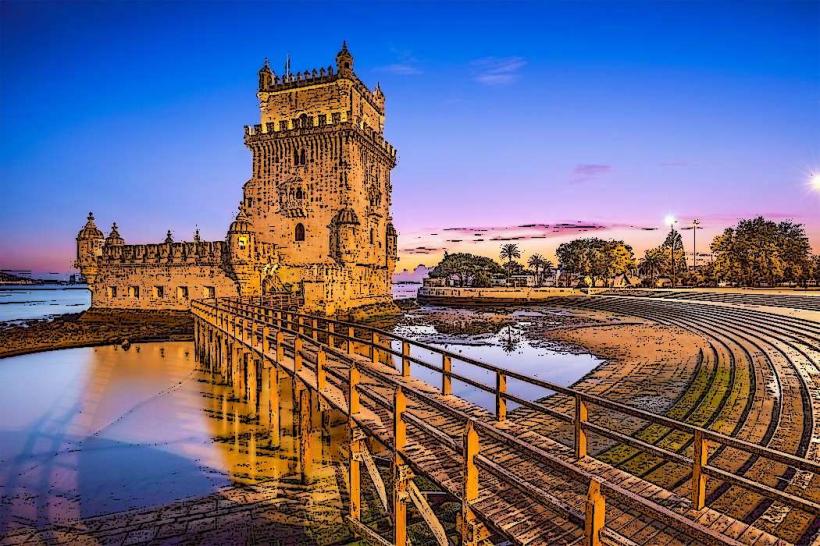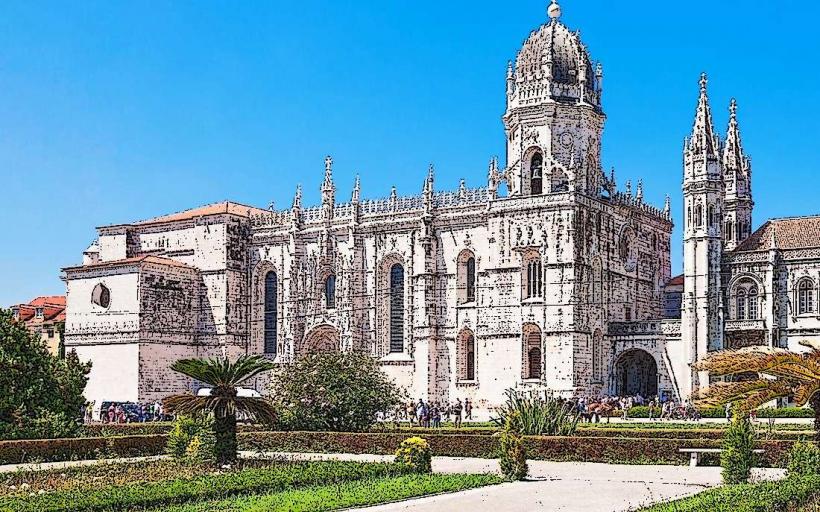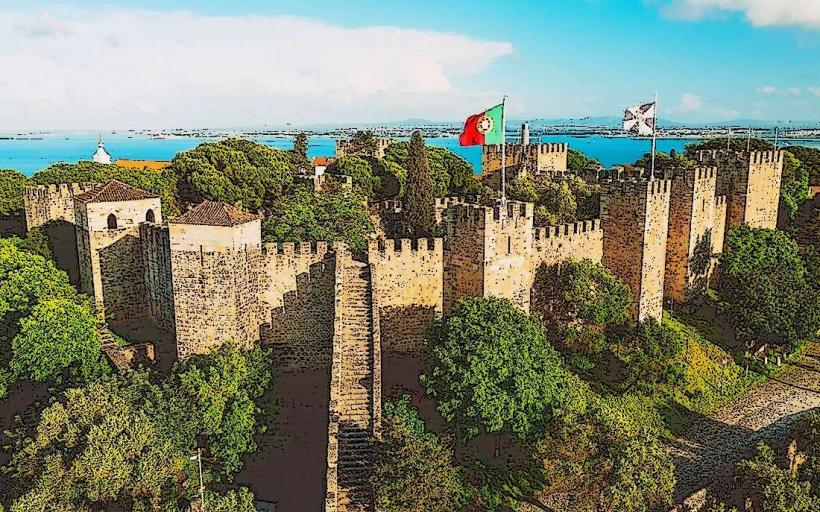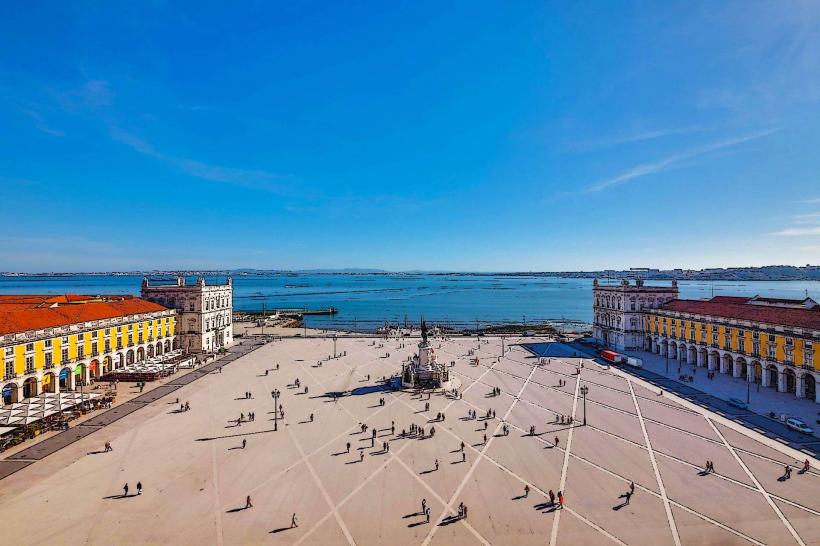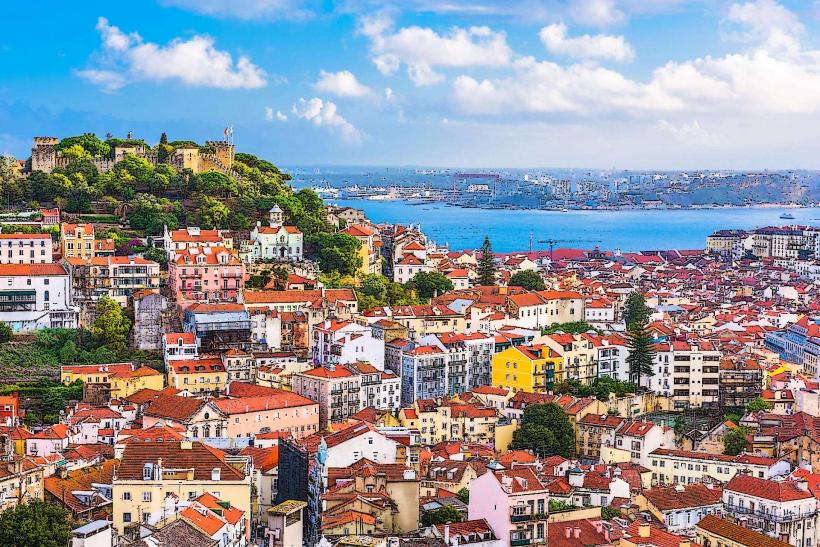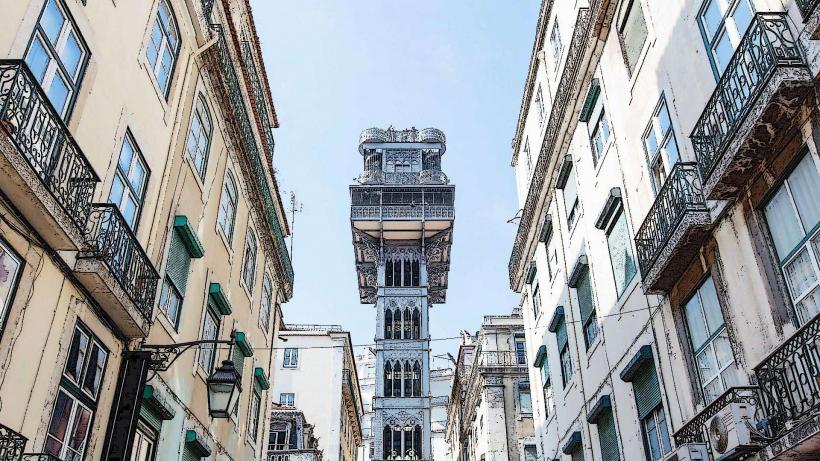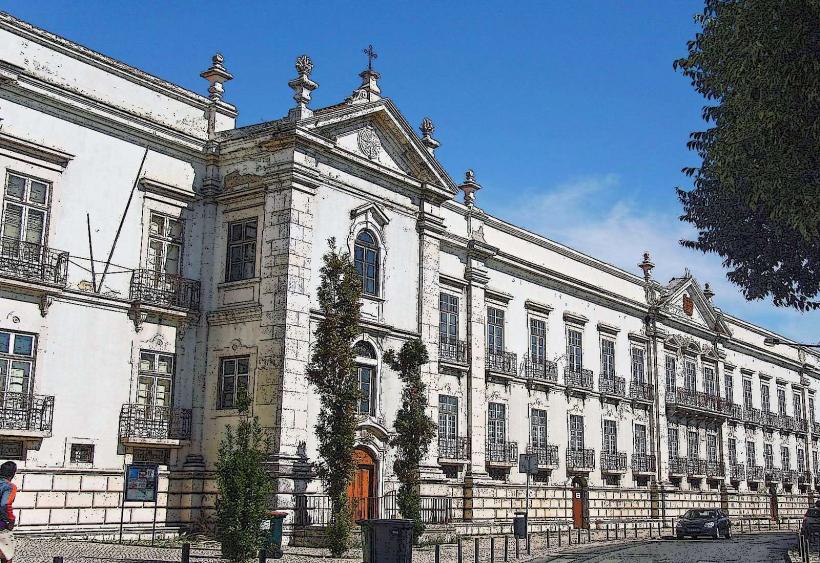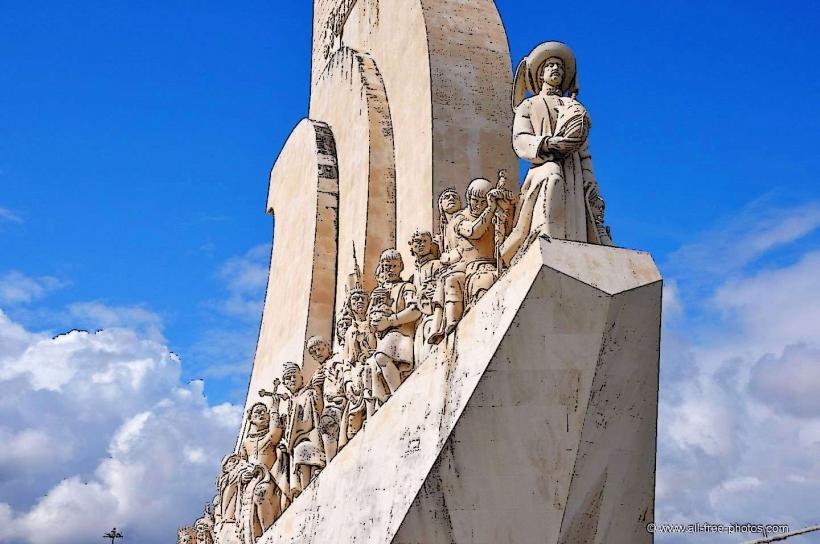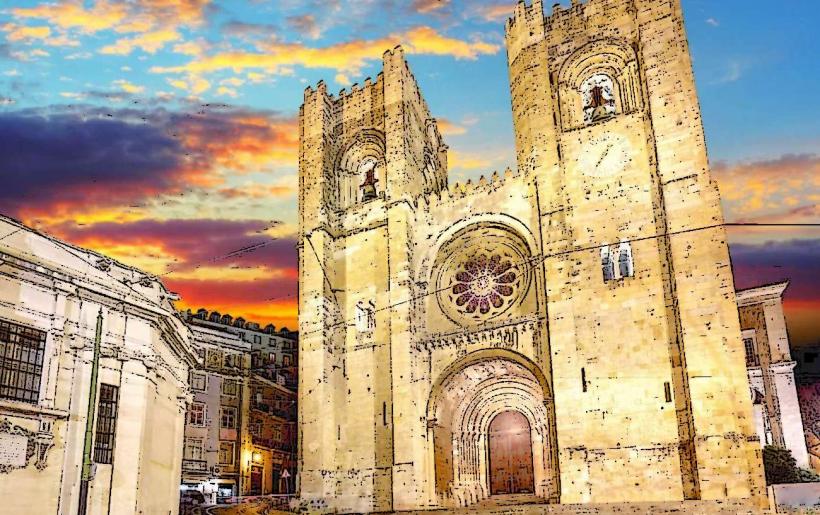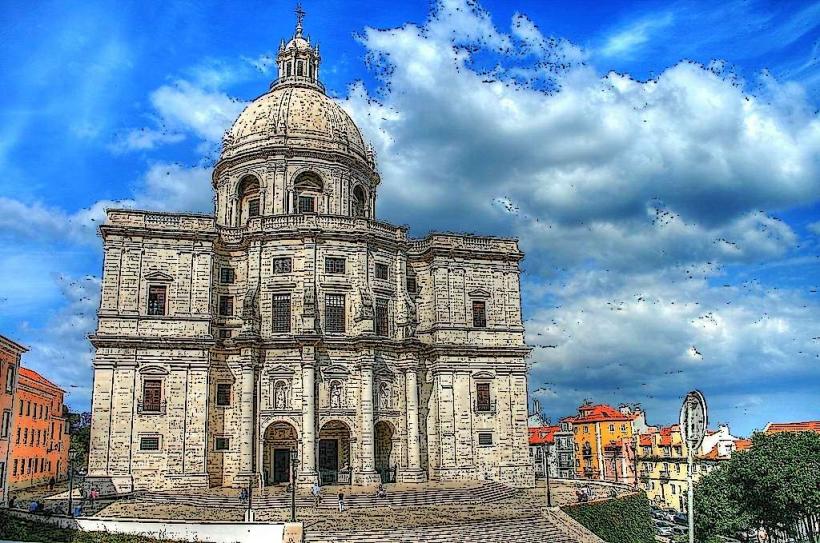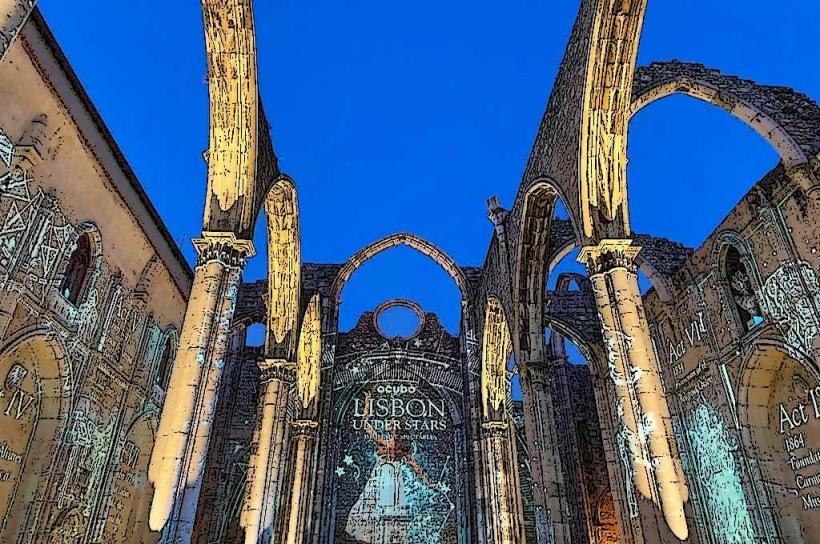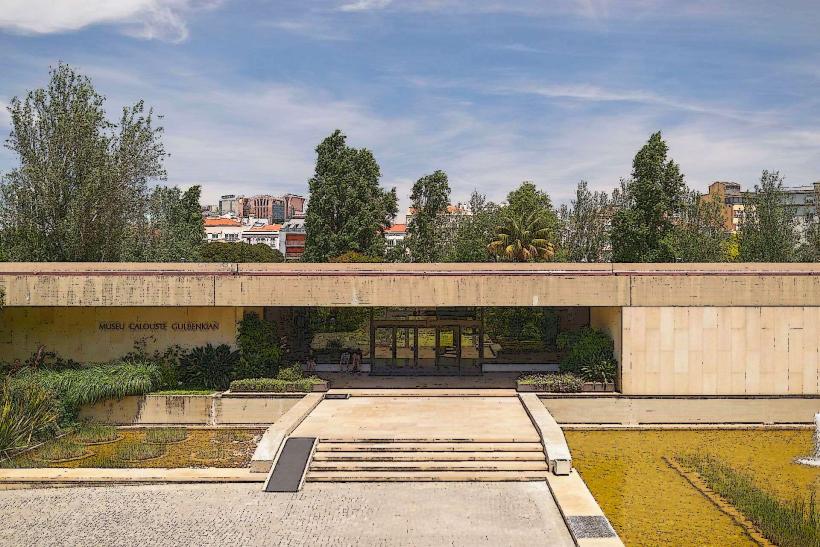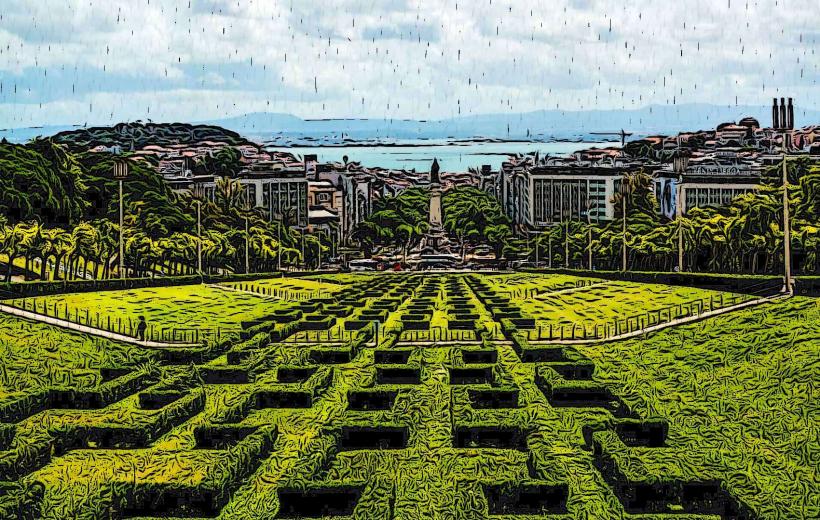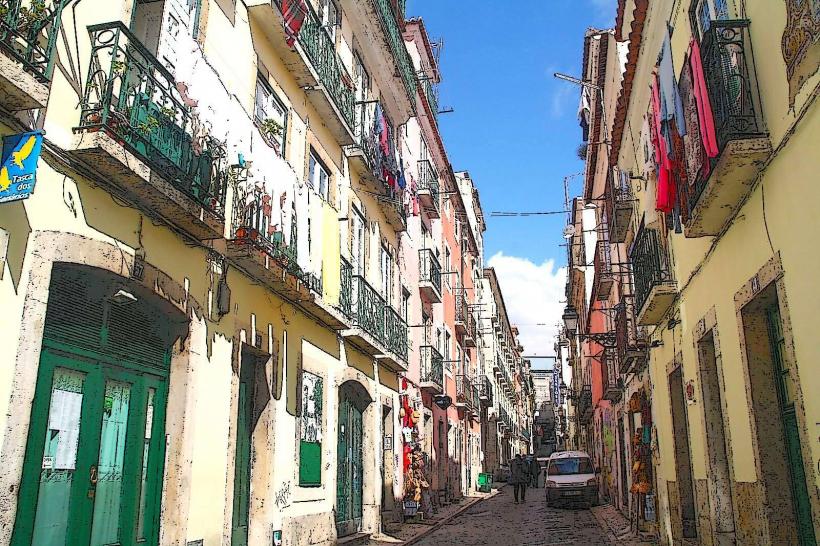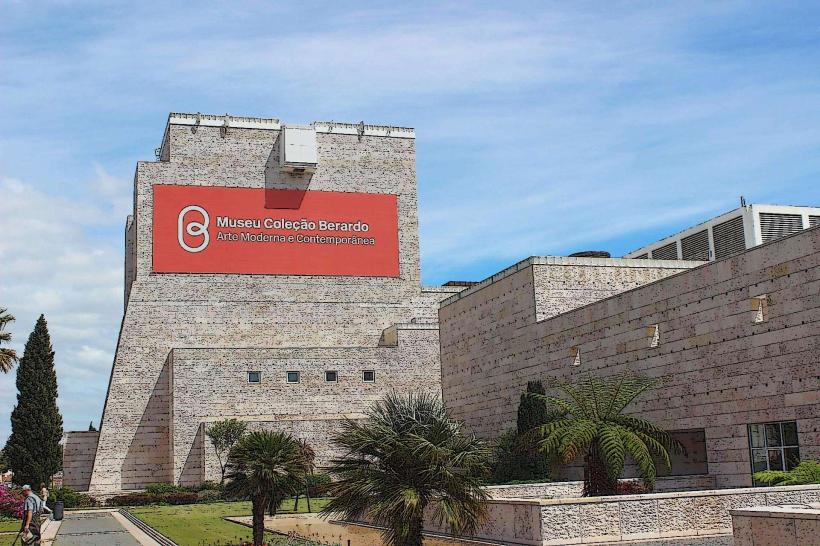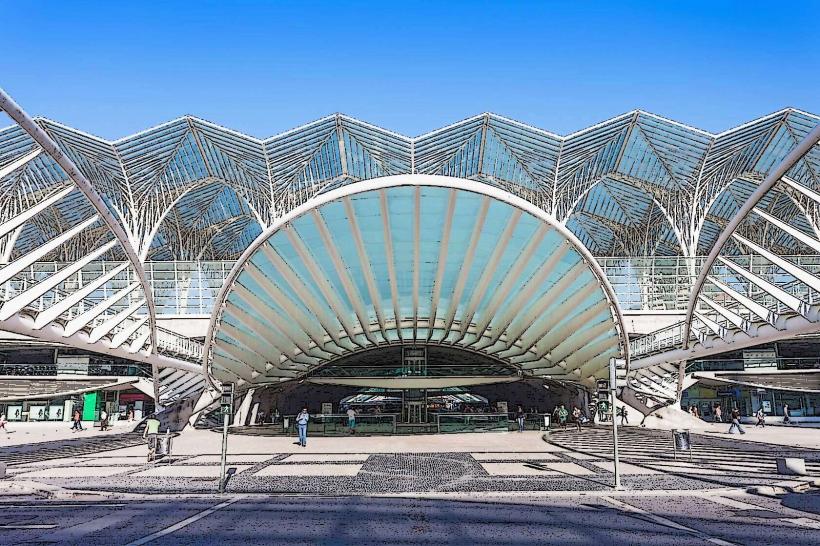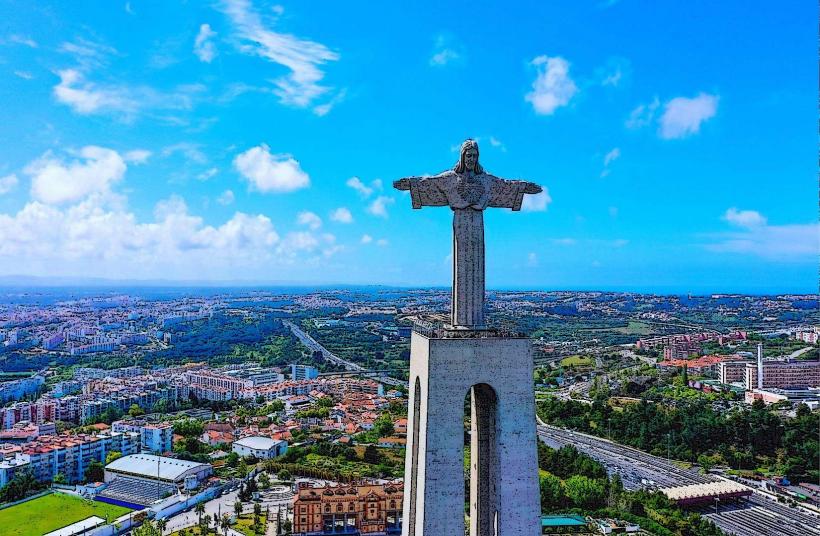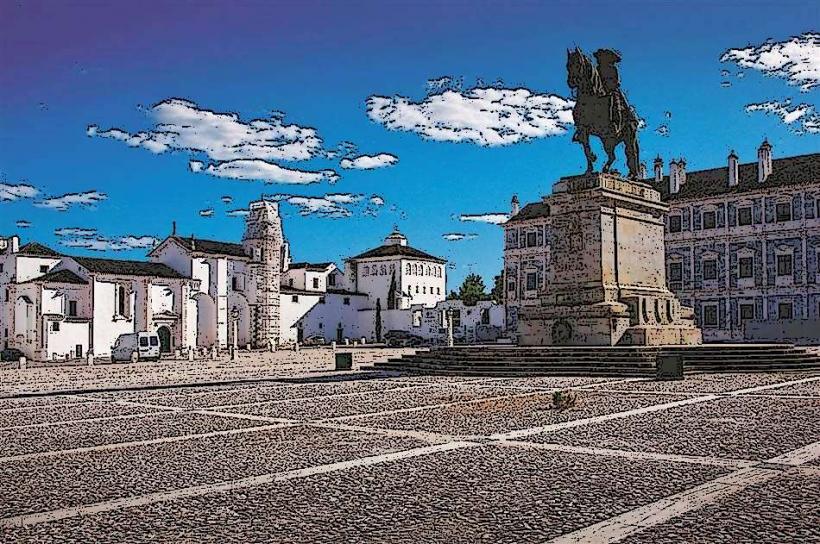Information
Landmark: Estrela BasilicaCity: Lisbon
Country: Portugal
Continent: Europe
The Estrela Basilica (Basílica da Estrela) is one of Lisbon's most remarkable and beautiful churches, both in terms of its architecture and historical significance. Located in the Estrela district, the basilica is a prominent landmark, known for its grand design and its important place in Lisbon's religious and cultural life.
1. History and Origins
- Construction: The Estrela Basilica was built in the late 18th century under the orders of Queen Maria I of Portugal. The queen, who was deeply religious, promised to build the basilica in gratitude for the birth of her son, the future king John VI of Portugal. The construction began in 1779 and was completed in 1834, several years after Maria I's death.
- Significance: The basilica was intended to serve both as a symbol of the queen’s devotion and as a place of worship and pilgrimage. It became a site of religious importance, attracting many visitors due to its grandeur and its connection to the royal family.
2. Architectural Style
- Baroque and Neoclassical Design: The Estrela Basilica is an example of Baroque architecture with some Neoclassical influences. The design was created by the architect Mateus Vicente de Oliveira, and it is one of the last major Baroque projects in Portugal. The church’s design features an impressive façade, large dome, and richly decorated interior.
- Facade: The basilica’s façade is characterized by its twin bell towers and ornate decoration. The front of the building is made of pink and white marble, giving it a distinct, eye-catching appearance. The main entrance is framed by columns and pilasters, topped with a pediment that adds to the monumental feel of the structure.
- Interior: Inside, the basilica is equally magnificent, with marble decorations and gold leaf accents. The church has a central nave with side chapels, and the altarpiece is a notable example of Baroque craftsmanship. The high altar is dedicated to the Sacred Heart of Jesus, a focal point for worship.
- Dome: One of the most striking features of the Estrela Basilica is its large dome, which is visible from many parts of Lisbon. The dome is intricately designed with painted frescoes depicting religious scenes. Visitors can also climb to the top of the dome for a panoramic view of the city and surrounding areas, including the Estrela Garden and the Tagus River.
3. The Estrela Garden (Jardim da Estrela)
- Location and Design: The Estrela Basilica is located next to the Estrela Garden, a lush public park that is one of Lisbon’s most beautiful and peaceful green spaces. The garden was designed in the early 19th century in the Romantic style and is a popular spot for both locals and tourists.
- Features: The garden includes walking paths, fountains, and a variety of trees and flowers. It is a great place for relaxing and offers scenic views of the basilica. The proximity of the basilica to the park makes it a perfect spot to enjoy both the spiritual and natural beauty of Lisbon.
4. Cultural and Religious Importance
- Religious Role: The Estrela Basilica is not only a historical monument but also an active place of worship. It remains an important site for Catholic religious services, including Mass, baptisms, and weddings. The church attracts pilgrims, especially those who seek to pay homage to the Sacred Heart of Jesus, the patron saint of the basilica.
- Royal Connection: The basilica is also linked to the royal family of Portugal. Queen Maria I was involved in its creation, and her tomb is located in the basilica’s crypt, along with the tombs of other members of the royal family. The royal connection adds an additional layer of historical and cultural significance to the basilica.
5. Visitor Experience
- Visiting the Basilica: The Estrela Basilica is open to the public, and visitors can explore both its interior and exterior. The entrance is free, but donations are welcomed. The basilica is especially beautiful when lit up at night, giving visitors an even more enchanting experience.
- Climbing the Dome: Visitors who wish to enjoy spectacular views of Lisbon can climb to the top of the basilica’s dome. The climb is fairly easy and offers one of the best panoramic views of the city, with sights including Alfama, Baixa, and the Tagus River. The view is particularly stunning at sunset.
- Opening Hours: The basilica is generally open daily, although opening hours may vary for religious services and events. It is advisable to check ahead, especially if you wish to attend a specific Mass or service.
6. Surrounding Area
- Estrela District: The Estrela Basilica is located in the charming Estrela neighborhood, which is known for its tranquil atmosphere and residential character. The area is less crowded than other parts of Lisbon, making it a peaceful place to explore.
- Access: The basilica is well-served by public transport, including buses and trams. It is a short walk from the Bairro Alto and Chiado districts, making it easy to visit as part of a broader exploration of Lisbon. The Rato metro station is also nearby, providing further accessibility.
7. Summary
The Estrela Basilica is a stunning example of Baroque architecture and a symbol of Lisbon’s religious heritage. Its impressive design, historical significance, and beautiful location make it one of the most important landmarks in the city. Whether you are interested in exploring Lisbon’s royal history, admiring architectural beauty, or simply enjoying a moment of reflection in a peaceful setting, the Estrela Basilica offers a unique and enriching experience.

